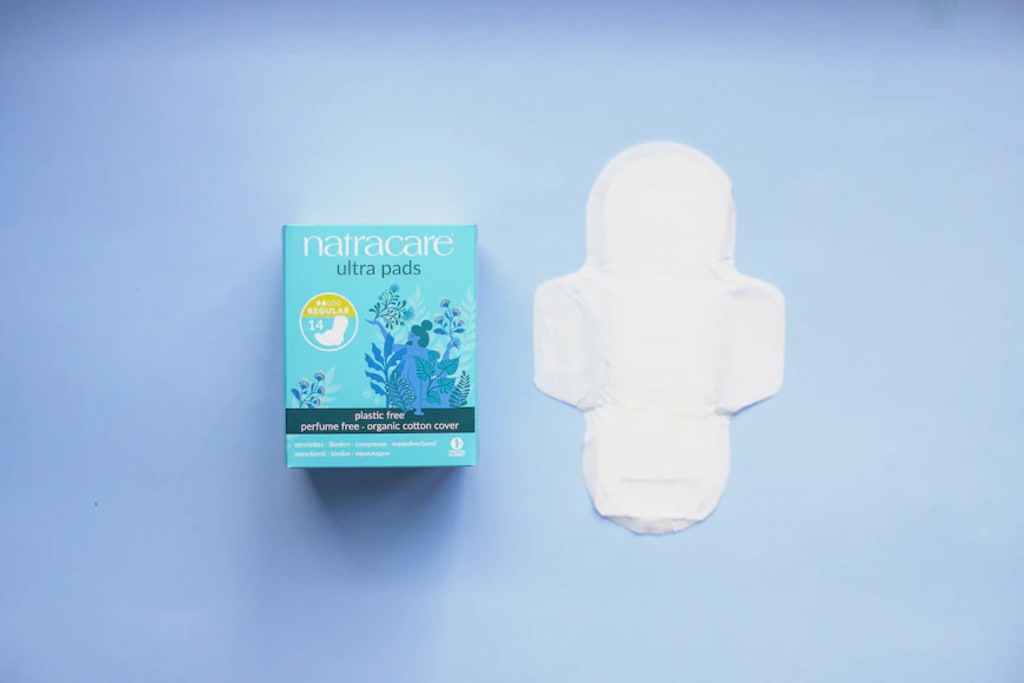
Sanitary pads are a widely used product by women worldwide, but they come with some harmful chemicals that can pose serious health risks. The use of pads is associated with the development of infections, reproductive and hormonal problems, and even cancer. In this article, we will explore the reasons why pads can be harmful, what conditions they may cause, and why Always pads are considered to be particularly dangerous.
The Harmful Chemicals in Pads
Sanitary pads are made of a combination of plastic, synthetic materials, and absorbent materials such as wood pulp and super-absorbent polymers. These materials can contain a range of chemicals, including dioxins, furans, and volatile organic compounds (VOCs). These chemicals are used in the manufacturing process and can be left behind in the pads.
Dioxins and furans are toxic chemicals that are released when plastics are burned, and they can also be produced during the bleaching process used to whiten pads. These chemicals have been linked to cancer, reproductive and developmental problems, and immune system damage. VOCs, on the other hand, are chemicals that evaporate at room temperature, and they can cause respiratory problems, headaches, and irritation to the eyes, nose, and throat.
The Harmful Effects of Pads
The harmful chemicals in pads can cause a range of health problems. The most common issues associated with pad use are infections, including yeast infections and bacterial vaginosis. The warm and moist environment created by pads provides a breeding ground for bacteria, and the chemicals in the pads can also disrupt the natural balance of bacteria in the vagina, leading to an overgrowth of harmful bacteria.
In addition to infections, pad use has also been linked to reproductive and hormonal problems. The chemicals in pads can disrupt the endocrine system, which regulates hormones in the body, leading to menstrual irregularities, reduced fertility, and even early onset of puberty. These chemicals can also accumulate in the body over time, increasing the risk of cancer.
Always Pads and Their Risks
Always pads are a brand of sanitary pads that have come under fire for their use of harmful chemicals. The company uses a combination of synthetic materials and super-absorbent polymers in their pads, which can contain dioxins and furans. In addition, Always pads have been found to contain glyphosate, a herbicide that has been classified as a probable carcinogen by the World Health Organization.
Glyphosate is commonly used in agriculture, but it has also been found in a range of consumer products, including food and personal care products. The chemical can disrupt the endocrine system and has been linked to cancer, reproductive and developmental problems, and other health issues.
Recently, a group of women in the United States filed a lawsuit against Always, claiming that the company failed to disclose the presence of harmful chemicals in their pads. The lawsuit alleges that the company engaged in false advertising and unfair business practices by promoting their pads as safe and gentle while withholding information about the risks associated with their use.
The lawsuit highlights the need for greater transparency in the manufacturing of feminine hygiene products and the regulation of the chemicals used in these products. Consumers have the right to know what they are putting in and on their bodies and to make informed choices about the products they use.
What Can You Do?
If you are concerned about the risks associated with sanitary pads, there are several steps you can take to protect yourself. One option is to switch to organic cotton pads, which are made from natural materials and do not contain the harmful chemicals found in traditional pads. You can also consider using a menstrual cup, which is a reusable silicone or rubber cup that collects menstrual blood instead of absorbing it.
Another important step is to advocate for greater regulation of the chemicals used in feminine hygiene products. The United States does not currently have regulations in place to ensure the safety of these products, and companies are not required to disclose the ingredients used in their pads and tampons.
By raising awareness about the risks associated with pads and advocating for greater transparency and regulation, we can help ensure that women have access to safe and healthy feminine hygiene products.
Important
While menstrual cups are a popular and eco-friendly alternative to traditional pads and tampons, we understand that they may not be suitable for everyone. It is important to choose menstrual hygiene products that are free from harmful chemicals and provide adequate protection. Several brands offer sanitary pads that are free of harmful chemicals, such as Seventh Generation, Natracare, and Rael. It is also important to read the label and do research on the materials and manufacturing processes used in sanitary pads to make informed choices.






Comments
There are no comments for this story
Be the first to respond and start the conversation.